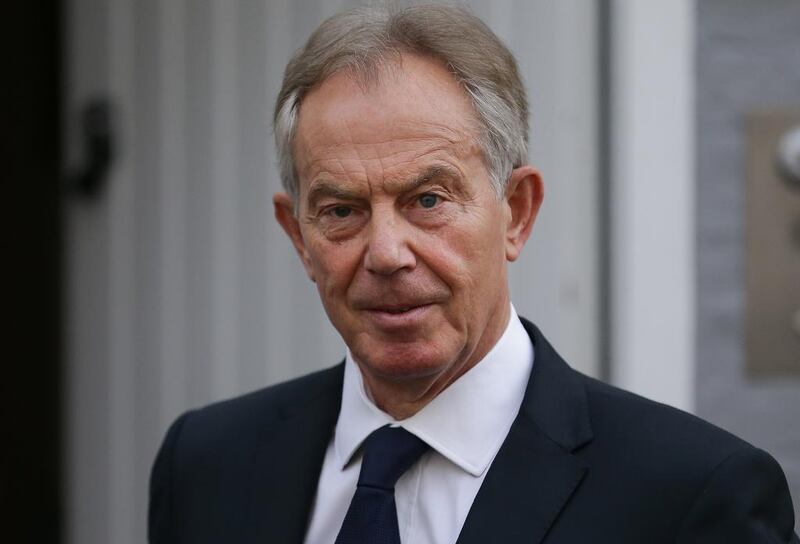ABU DHABI // With its progressive and open-minded policies, the UAE is a role model for the rest of the world, former British prime minister Tony Blair says.
Mr Blair was speaking at a lecture in the Emirates Centre for Strategic Studies and Research in which he addressed the opportunities and challenges of globalisation.
He believed that in an increasingly interconnected world, the main political conflict was no longer between left-wing and right-wing governments but between open-minded and close-minded leadership.
“We are facing unprecedented upheaval, not only in the Middle East but across the globe,” he said.
“We are on the edge of a period of openness and inclusion or a very dark period of close-minded policies.”
Examples of isolationism were rife in Europe, said Mr Blair, with one of the most profound being the UK’s decision to leave the European Union.
“Brexit is a catastrophe for Britain,” he said.
The decision resulted from a curious alliance of the far left and far right, both of which were increasing their political influence in the West.
“Both are against free trade, immigration and an opening of their societies [and] are pushing back against globalisation. They see the change and feel powerless to stop it.”
The antidote to anti-global policies was education, according to Mr Blair.
“[This is] the single most important way to prepare societies for globalisation. We need a commitment to it like the one we have on climate change.”
Rather then fill students with useless information, which Mr Blair said was the norm during his school days, what was needed now was teachers who guided students and promoted critical thinking.
“If [the UK] created an education system today we would not create the current system. UAE has a good chance to change the [traditional] education system.”
Mr Blair said his sentiments were shared by many in the Middle East, referring to the Arab Youth Survey, which routinely indicated that the UAE was the country the young would most like to live in and would like their countries to emulate.
When asked about the effect of low oil prices, Mr Blair said it provided countries like the UAE a good opportunity to put in place reforms which had to be carried out regardless of the health of the market.
“UAE is leading the way and with a lot of young people there is a chance to have a young entrepreneurial sector.”
Shortly after his resignation as prime minister in 2007, Mr Blair was appointed Special Envoy of the Quartet on the Middle East, a post he held until 2015.
Earlier this year, Mr Blair was criticised in the Chilcot Report, an official UK government inquiry into the Iraq War, for misleading the public.
He apologised and said he would take full responsibility but said his decision was taken “in good faith”.
On the topic of Iran, he felt the majority of Iranians were open-minded but that the government was not.
“Sometimes in the West we lump in Saudi Arabia and Iran. No. Saudi Arabia is our ally and Iran still exports chaos.”
He said that was evident with Iran’s support of Hamas and Hizbollah, in Yemen, and its efforts to undermine Bahrain.
“Similarly, it is not about Sunni versus Shia, it is about open versus close-mindedness.”
On the subject of Palestine, Mr Blair he said he still felt a two-state solution was the only solution.
“But you cannot have peace with people living in the situation they are in Gaza. You have to build it up,” he said.
He said the Arab Peace Initiative, proposed in 2002 to end the conflict with Israel, was a good idea but was but was launched in a time of conflict.
“This should be revisited through serious negotiation,” he said.
tsubaihi@thenational.ae






